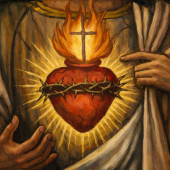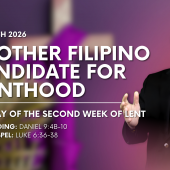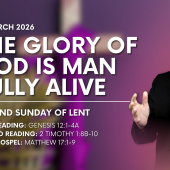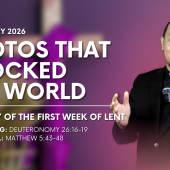Humans need to live intentionally and wisely!

September 07, 2025 Twenty-third Sunday in Ordinary Time
Daily Readings: Wisdom 9:13-18b; Philemon 9b-10, 12-17; Luke 14:25-33
Discipleship is not merely an occasional act of devotion but a way of life, a conscious, lifelong commitment to follow Jesus. It begins by listening to Him, walking with Him, being formed by Him, and ultimately being ready to be sent out in His name. This journey is deeply spiritual and personal, demanding continual self-transformation in the light of Christ.
The First Reading from the Book of Wisdom (9:1-18) presents King Solomon’s prayer for divine wisdom. Though crowned with glory and honour, as the Psalmist reminds us (Ps 8:5), humanity remains fragile and limited. Solomon humbly acknowledges that human reasoning is uncertain and that discerning God’s will lies beyond our finite understanding. True wisdom is a gift from God alone, who is both immanent, intimately present with us, and transcendent, beyond all creation. This truth invites us to seek not self-reliance but reliance on God’s guidance in all things.
The Responsorial Psalm (Ps 90), attributed to Moses, echoes this humility. In the wilderness, Moses praises God as the eternal refuge of generations and contrasts His timelessness with human frailty. Life, he says, is fleeting, like grass that flourishes in the morning and withers by evening. Yet, in this brevity lies an invitation: “Teach us to number our days, O Lord, and grant us a wise heart.” True discipleship, then, is lived with an awareness of life’s transience and a heart anchored in God’s eternity.
In the Second Reading (Philemon 9-17), Paul’s affectionate letter to Philemon reveals the transforming power of Christian discipleship. Onesimus, once a runaway slave, encounters Christ through Paul’s ministry and is now sent back, not as a slave but as a beloved brother. Paul’s appeal reflects the radical equality and fraternity born of the Gospel. In Christ, social barriers collapse, and relationships are redefined in love. Discipleship, therefore, is not an abstract spirituality but a concrete reshaping of human relationships in Christ’s love.
The Gospel (Luke 14:25-33) brings us face to face with the cost of discipleship. Jesus, journeying toward Jerusalem and His own Passion, invites His followers to embark on a journey deep into their own hearts. He sets forth three stark demands: (i) “Hate” one’s family, (ii) carry the cross, and (iii) renounce all possessions.
At first glance, these requirements may seem harsh, even inhuman. But Jesus’ words are not a call to literal hatred; rather, they invite radical preference for Him above all else. Allegiance to Christ must take precedence over even the strongest natural ties. The second demand, to carry the cross, underscores the willingness to embrace suffering and self-denial for the sake of the Kingdom. Just as the condemned in Roman times bore their crosses to the place of execution, so must disciples be ready to die to self. Finally, renouncing possessions liberates the heart from attachment and makes room for God to be our ultimate treasure.
Jesus uses two parables, a builder estimating the cost of a tower and a king weighing the prospects of war, to emphasize the need for deliberate, thoughtful commitment. Discipleship cannot be entered into lightly; it demands an honest reckoning of what we are willing to surrender.
In the end, Jesus’ call is not to destruction but to freedom and life. By loosening our grip on family, possessions, and self-will, we become capable of a greater love, a love that reflects Christ Himself. Discipleship may indeed be costly, but it leads to true liberation, authentic joy, and eternal communion with God.
The choice is ours: to cling to what passes away or to follow the One who offers life in abundance. May we have the courage to answer His call.
Call to Action: Discipleship is all about prioritizing Jesus. What are my priorities?
Radio Veritas Asia (RVA), a media platform of the Catholic Church, aims to share Christ. RVA started in 1969 as a continental Catholic radio station to serve Asian countries in their respective local language, thus earning the tag “the Voice of Asian Christianity.” Responding to the emerging context, RVA embraced media platforms to connect with the global Asian audience via its 21 language websites and various social media platforms.














